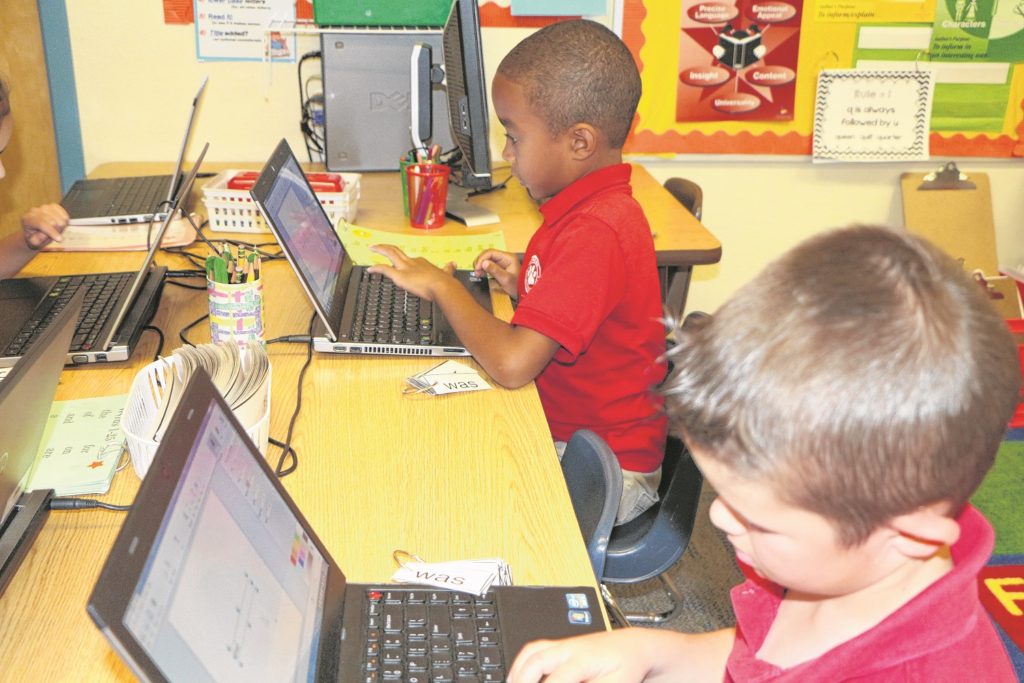
By Diana Whittle
The Kyrene district will offer more learning opportunities in the upcoming school year for pre-schoolers who are between the ages of 3 and 5.
For families who live east of I-10, the closest program sites will be Brisas, Cielo, Manitas, Mirada and Paloma schools. In addition, a Spanish-language immersion option is located at Niños.
The district is hosting an information meeting to explain all the class options to parents at 6 p.m. Tuesday, July 18 at the Kyrene School District office, 8700 S. Kyrene Rd., Tempe. Free childcare will be provided.
Typically, pre-school kids are bundles of energy and curiosity while they adapt to growing beyond the toddler stage. It’s also a time of rapid social maturity—when children move away from the secure boundary of parents to a world that includes other adults and children.
A newly updated research study, the “Kids Count Data Book,” coordinated in Arizona by the Morrison Institute at ASU, reports on trends in childhood development, including a greater national emphasis on educating toddlers.
The findings suggest that children who receive pre-school education will perform better in kindergarten and elementary school, which in turn reduces the need for grade repetition or special education placement.
Kyrene Superintendent Dr. Jan Vesely agrees with the study’s recommendations.
“A quality pre-school experience will change a child’s trajectory in the future. It’s so important to provide a solid educational foundation for children,” said Vesely.
Last year, Kyrene launched its early learning programs at Traditional Academy to give children exposure to classroom learning and allow them to more seamlessly transition to kindergarten.
During this stage, preschoolers also learn more sophisticated ways to relate to others and to manage their emotions. Teachers develop age-appropriate learning activities to curb preschool aggression by teaching children about emotions, helping them learn the names for their feelings and giving them an outlet for expression.
But the early learning curriculum also allows time for the children to initiate experiences and to express emotions through play.
Structured play times allow children to experiment with and understand social roles, to develop social skills, to express and cope with feelings, relieve stress, exercise control over their surroundings and experiment with decision-making.
Vesely says that teachers will work with parents at all pre-school programs to deliver a personalized approach to meet the individual needs of each student, and their progress will be followed with portfolios and developmental assessments.
Kyrene’s developmentally appropriate, peer-based curriculum is aligned with the Arizona Early Learning Standards, and emphasizes early literacy, math and communication. The goal is for children to learn to interact with others in appropriate ways; improve motor and self-help skills; encourage creativity and a love of learning.
Following the district’s calendar, each class is three hours and taught by a certified early childhood teacher, with a teaching assistant and a speech/language pathologist providing service and support.
Classes are kept small, generally between 14 to 16 children, and comprised of typically developing children and those with disabilities.
Enrollment for preschool is ongoing throughout the school year. The morning session runs 8:20-11:20 a.m.; the afternoon session is 12:20-3:20 p.m., Monday, Tuesday, Thursday and Friday at all sites.
Information: 480-541-1156 or blugo@kyrene.org.

